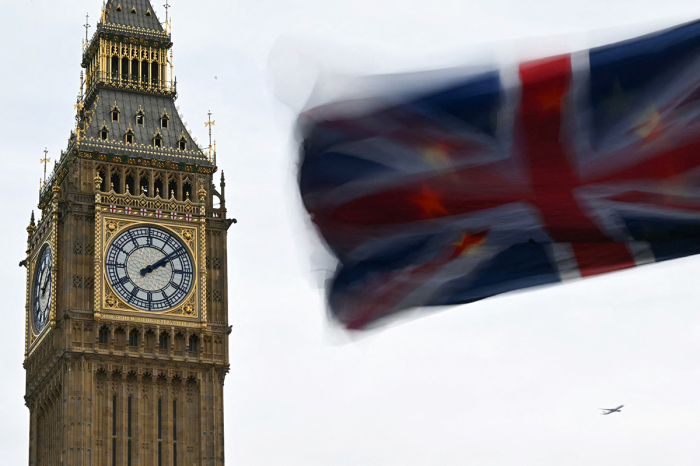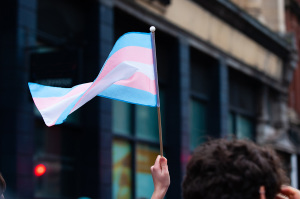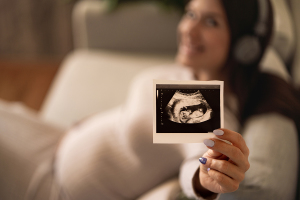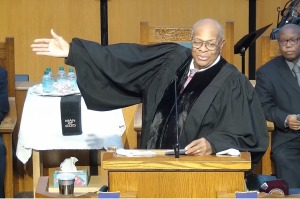Asylum seekers ‘melt away’ when asked to be involved in church before baptisms, priest says

A former Church of England priest claims that many asylum seekers he came across withdrew their interest in baptism upon being asked to participate in church activities to ensure they weren't just looking to bolster their asylum applications, drawing pushback from the diocese.
Matthew Firth, who served at St. Cuthbert's in Darlington before leaving the Church of England for the Free Church of England in 2020, gave testimony to the Home Affairs Select Committee on Tuesday. He recounted his experience with asylum seekers at his church between 2018 and 2020.
His testimony comes after judges voiced concern that church leaders are being "duped" by asylum seekers who claim to convert to Christianity to evade deportation amid heightened scrutiny following the Clapham chemical attack. The attacker, Abdul Ezedi, was reportedly granted asylum on the grounds of conversion to Christianity at a Baptist church.
The Church of England has faced scrutiny into whether its leaders were supporting "bogus" asylum claims.
Firth said he observed a significant number of asylum seekers, mainly from Iran and Syria, showing initial interest in converting to Christianity but dissipating when required to engage with the church community.
His suspicion was fueled by interactions with an individual who, having secured the right to remain in the U.K., was bringing others to the church for baptism without seeking it personally.
"After those baptisms, week-in, week-out, significant groups of mainly Iranian and Syrian young male asylum seekers were being brought to me in sizeable cohorts," Firth said, according to BBC.
He said many brought to him "had already failed in their asylum claim."
However, when the church implemented a more stringent process requiring regular church attendance before baptism, many individuals ceased their involvement.
"I spotted that dynamic going on and pressed pause in a reasonable way," he claimed, adding that many "melted away" when he asked them to attend church regularly before baptism.
"People would, fairly quickly, stop coming to that morning service. … They weren't coming along to church after that," he was quoted as saying.
"I think some of them are in very difficult situations and they are seeing baptism as a ticket to something whether that it's true or not."
He further alleged that some churches provide support and advice to seekers whose applications are rejected. Firth described the Church of England as a "conveyor belt" for asylum seeker baptisms.
A spokesperson for the Diocese of Durham says it has "not seen any evidence to support the claim made by Matthew Firth that the Church of England is being used as a 'conveyer belt' for baptisms in order for people to gain asylum status."
"We are extremely proud of St. Cuthbert's and the work the church does to ensure asylum seekers and refugees are welcomed and supported in Darlington," the spokesperson said in a statement shared with media.
"The baptism records before and during Mr. Firth's time at St. Cuthbert's, and the testimony of local church members, do not accord with Mr. Firth's evidence."
The spokesperson said that parish records show that only 15 of 189 people baptized at the church since 2014 were asylum seekers, with half of those being baptized by Firth.
"In the four years prior to Mr. Firth's arrival as Priest in Charge in 2018, only six people who may have been asylum seekers were baptized," the spokesperson added. "As Priest in Charge it was his responsibility to check the authenticity of candidates and it is surprising that, as he acknowledged to the committee, he did not report any sign of anything amiss, at the time. ... Even so, it is not the Church's responsibility to assess the veracity of asylum claims, and religion or faith is not a determinative reason for asylum."
The Telegraph's investigation into immigration tribunal decisions has revealed skepticism from judges regarding the depth of scrutiny applied by religious leaders to asylum seekers' conversion claims. Instances were noted where asylum seekers failed to convincingly demonstrate their conversion to Christianity, leading to questions about the church's role in supporting asylum applications.
Archbishop of Canterbury Justin Welby recently defended the church's actions, emphasizing its commitment to biblical teachings of caring for the vulnerable, including refugees and asylum seekers. He stressed that the government and courts are responsible for border protection and asylum case judgments.
Former Archbishop of Canterbury Lord George Carey criticized the church leadership for its handling of migration issues, suggesting that the church's approach may inadvertently support insincere asylum claims. He advocated for more rigorous baptism preparation to discern genuine conversions.





























